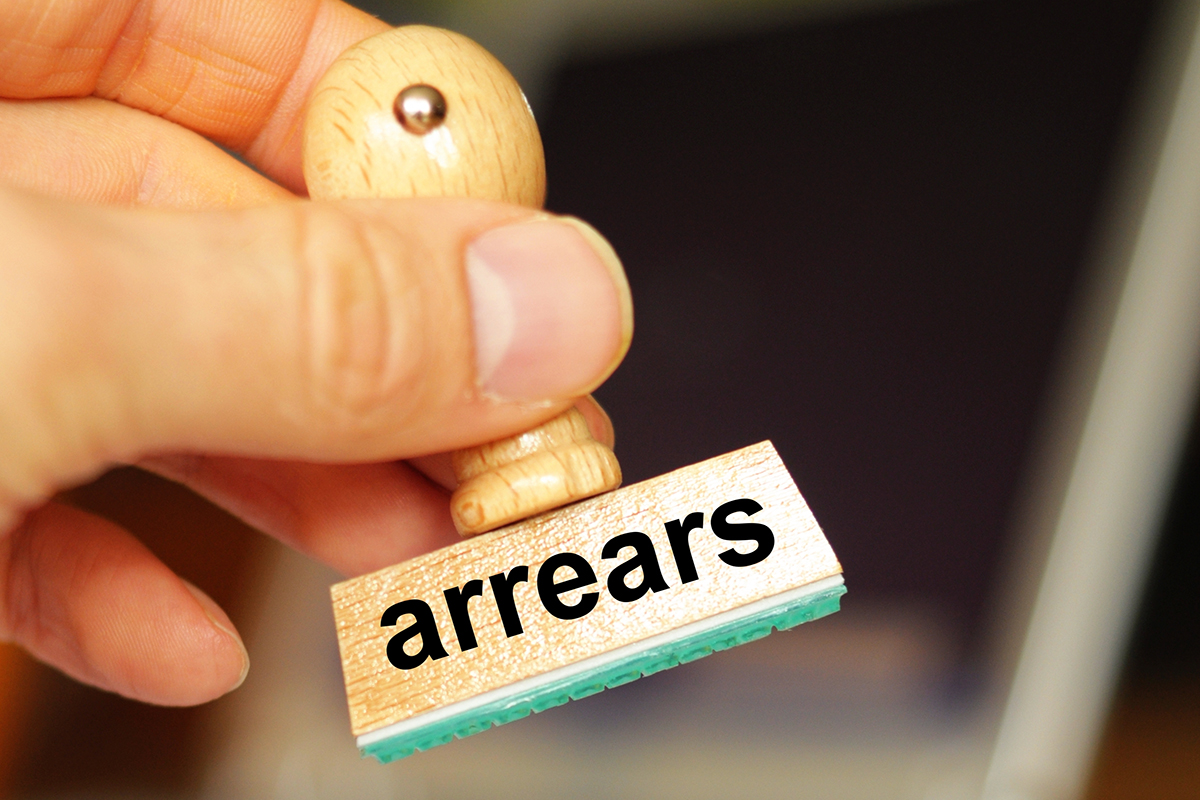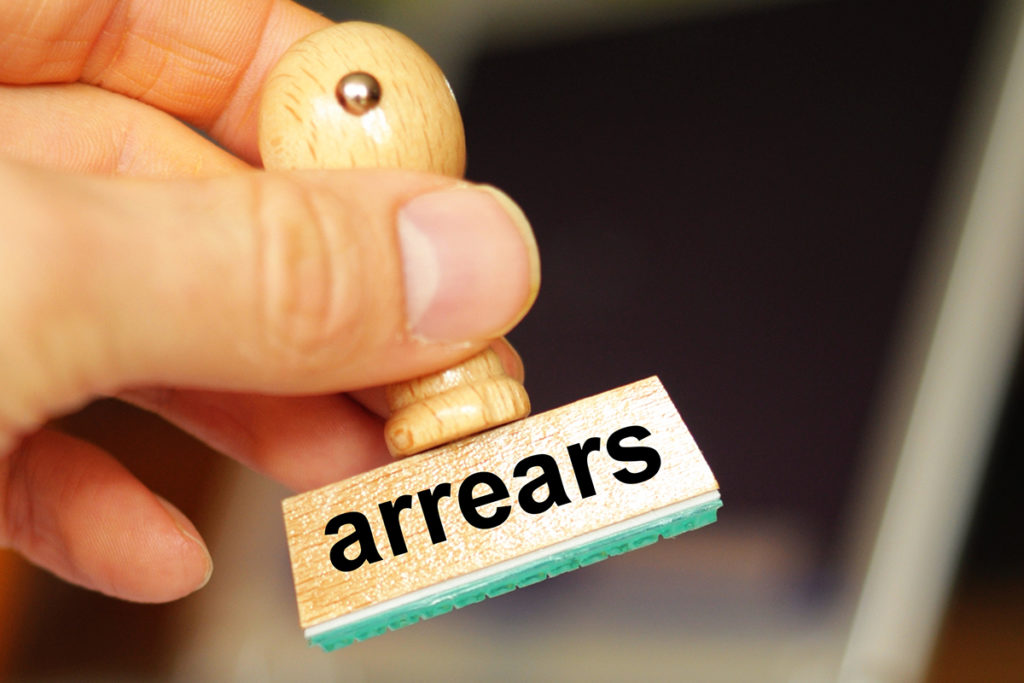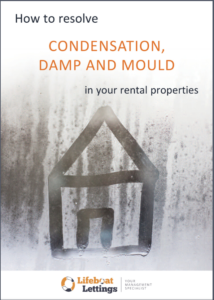
It is the situation that gives landlords the most sleepless nights: a tenant can’t pay, refuses to pay or simply chooses not to pay all or some of the rent, either temporarily or permanently. This is often – although not always – coupled with increased communication issues, or maybe not being able to get hold of the tenant at all. This very much compounds the level of stress for the landlord.
So what can be done when a tenant falls into arrears and how should a landlord approach the situation?
Here are some of the key steps you must take.

Have an open mind
Annoying though it is not to be paid for goods or services you have provided in good faith, don’t let your emotion get the better of the situation. In most situations you can take the moral high ground: you have done nothing wrong, you have provided the service and not been paid for it, you have a legally binding contract which states when and how the rent should be paid. Once this obstacle has been overcome, you can start to think rationally. Even though you are quite obviously and rightly due to receive your rent, it is important to keep an open mind at this stage. Why might the money have not been paid? Has there been a banking error of some kind (either with your bank or the tenant’s). If the rent is delayed by a day or two over the weekend, this may be due to the payment date falling on a Sunday or national holiday.
It pays to take a slightly laid back approach to a delay of one or two days. There are a large number of reasons why a tenant may not be able to pay their rent on the exact due date. They could be ill, on holiday, or working extended hours, meaning they can’t get to the bank. If the rent is usually paid by standing order, this could have been inadvertently cancelled. Much of your attitude as landlord will of course depend on whether this is an isolated incident, or whether there are significant arrears already etc. Depending on the length of the delay in payment though, eventually speculation will need to turn into communication.
Communicate
Communication is key in most situations and none more so than when dealing with rent arrears. Make sure you have drawn the tenant’s attention to the non-payment after a couple of days. Again, remember that there might be a logical and innocuous reason for this. If you are using a property management system of some kind, there may be a facility included to automate this initial contact via email or text messaging. As time passes and payment has still not been received, a polite phone call is usually sufficient to get to the bottom of the issue and come to an arrangement for payment. If immediate contact can’t be made and the tenant doesn’t return your call in a day or so, then it is worthwhile sending a letter at this stage. If there are repeat or longstanding arrears, you should include a statement of account, showing the running total of the arrears and requesting immediate payment, or reminding the tenant of the agreed payment plan.
During the peak of the Covid pandemic, it was commonplace for landlords and tenants to agree payment plans for arrears or reduced rent payments for a period. Make sure you capture the details of this – and your agreement – in any communication. It may also be necessary to arrange a meeting with the tenant, both to keep the lines of communication open and to explain or discuss the situation in more detail. It’s worthwhile also at this stage suggesting some places your tenant can turn to for support for debt management.
Document all contact
Whether of not you are communicating face to face, via phone, text or letter – or a combination of these methods – it is important that you document all contact, or your effort to contact the tenant. Keep copies of all letters sent and use a central property management system to capture the notes of all discussions or messages and in particular any actions that were agreed.
Contact the guarantor
It is becoming more common for tenancies to include a guarantor, who will be agreeing at the outset of the tenancy to cover any costs associated with contract breaches by the tenant – and this includes non-payment of rent. A suitable guarantor will be someone who is both a homeowner and employed within the UK and are earning sufficient multiples of the monthly rent, to cover both their living expenses and potentially any financial penalties due to breach of contract by the tenant. It is important that the guarantor is a homeowner rather than renter, as it will then be possible to put a charge against their property and assets as additional persuasion, should they choose not to cooperate from the outset. In all cases, except minor short-term arrears or delayed payments, it is both common courtesy and a legal necessity, to keep the guarantor informed of the situation with the tenancy. There are a couple of things to remember here.
Firstly, the guarantor and tenant are both jointly and severally liable for the conduct of the tenancy, meaning that either one of them is liable for the whole cost (irrespective of any agreements they may have with each other). So, should the tenant be unable or unwilling to pay, then it is the guarantor who will have to pick up the full bill.
Secondly, it is very common for tenants who get into difficulties paying their rent to ‘forget’ to share this critical information with their guarantors, who are then on the hook to bail them out. So, bear in mind that this news may come as a shock and approach the situation diplomatically.
Payment plans
A bit more on payment plans at this stage. Assuming that the rent arrears have stopped accumulating and the tenant is back on track with their regular rent payments, this is obviously not the end of the situation. The tenancy may suddenly be ‘salvageable’ and is easy at this stage for both parties to assume that everything is ‘OK again’ and for the arrears themselves to be quietly forgotten. Of course, it may be that you are happy for this to occur, in which case it is right to inform the tenant there and then of your decision (rather than leave them worrying about this in the back of their mind). Do this in writing. Both parties can then move on and hopefully the tenant will remember and appreciate the time in the past when you generously provided them with free accommodation. Conversely, you have every right to want and expect the arrears to be paid off and if this is the case, then you should quickly move on to discuss and agree a payment plan. Speak to the tenant if possible and thank them for getting back on track but also remind them that the arrears now need to be paid off in a reasonable time frame. Typically, this will require a regular payment in addition to their monthly rent and our experience has taught us that this arrangement is better than relying on vague promises to pay lump sums ‘when possible’. It is also much easier to track this kind of agreement and for both parties to be aware when it has been broken. Use a time frame that is reasonable – perhaps paying 3 months worth of arrears back over 12-18 months – rather than trying to collect all the arrears over only a few months. Remember, little and often is going to be easier for the tenant to manage than trying to put too much pressure on their finances and the payment plan going off-track.
A bit more on payment plans at this stage. Assuming that the rent arrears have stopped accumulating and the tenant is back on track with their regular rent payments, this is obviously not the end of the situation. The tenancy may suddenly be ‘salvageable’ and is easy at this stage for both parties to assume that everything is ‘OK again’ and for the arrears themselves to be quietly forgotten. Of course, it may be that you are happy for this to occur, in which case it is right to inform the tenant there and then of your decision (rather than leave them worrying about this in the back of their mind). Do this in writing. Both parties can then move on and hopefully the tenant will remember and appreciate the time in the past when you generously provided them with free accommodation.

Conversely, you have every right to want and expect the arrears to be paid off and if this is the case, then you should quickly move on to discuss and agree a payment plan. Speak to the tenant if possible and thank them for getting back on track but also remind them that the arrears now need to be paid off in a reasonable time frame.
Typically, this will require a regular payment in addition to their monthly rent and our experience has taught us that this arrangement is better than relying on vague promises to pay lump sums ‘when possible’. It is also much easier to track this kind of agreement and for both parties to be aware when it has been broken. Use a time frame that is reasonable – perhaps paying 3 months worth of arrears back over 12-18 months – rather than trying to collect all the arrears over only a few months.
Remember, little and often is going to be easier for the tenant to manage than trying to put too much pressure on their finances and the payment plan going off-track.
Ending the tenancy
Sadly, even when doing everything by the book, using common courtesy and understanding of the tenant’s circumstances, allowing ‘more time’ or trying to put in place payment plans, all too often it is necessary to bring the tenancy to an end. Often this can be done reasonably amicably, with or without recovery of the debt.
Commonly though, it is necessary to seek possession through the courts. It is beyond the scope of this document to address the fine details of serving notice and seeking possession but, there are a few general rules of thumb to remember. Firstly, communication and documentation are still key. It is important to remain professional at all times and document all correspondence. When conversations do occur with your tenant, remember to stay calm and fact based. Stress that you have taken every reasonable action to sustain the tenancy and that this was the last resort (perhaps reference a previous letter or discussion and remind them that they didn’t do what you asked them to do). Explain to the tenant the likely sequence of events and what will (not might) now happen. It is best to keep conversations short, refer them back to your letters and notices and advise them to now seek legal advice and representation.
After eviction
If an eviction process is followed through the courts on the basis of rent arrears (i.e. using a Section 8 notice), then you should be awarded a possession order and also a judgement for costs (including the rent arrears). To gain possession you may have to go back to the courts to get this enforced and have a bailiff actually remove the tenant from your property. At the point of original judgment however, the tenant now has a County Court Judgment (CCJ) against them. This is an official record from the courts that they owe you money and it goes on their financial record to show anyone accessing it can see when it was, what it was for and whether it has been paid back. Generally speaking it will make accessing credit and accommodation very difficult, if not impossible.
Should your tenant not pay back the CCJ, or breach any payment agreement associated with it, then you can apply to the courts again to get an ‘attachment to earnings’. Alternatively you can use a tracing agency to find the tenant (once they leave or are removed from your property) and then a debt collection agency to pursue them to recover the money.
If you are experiencing difficulties with anything mentioned in this article, contact us and we will do our best to advise you.




